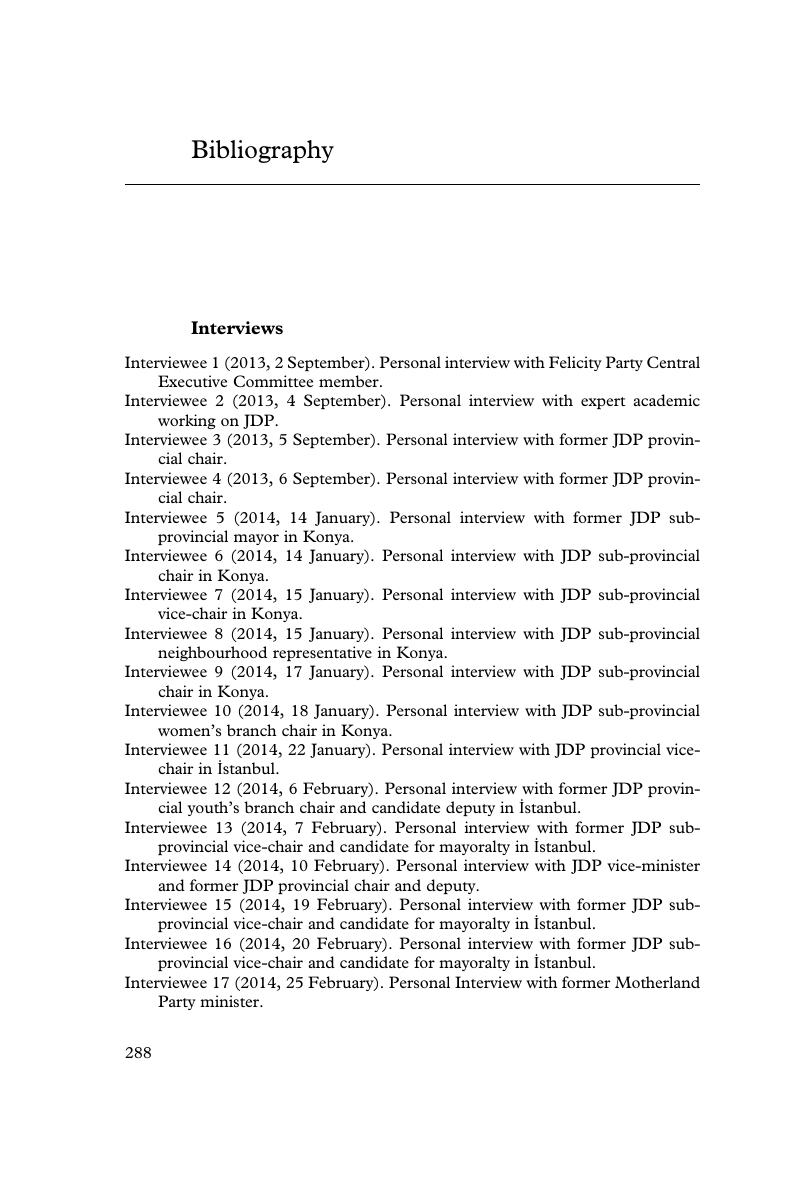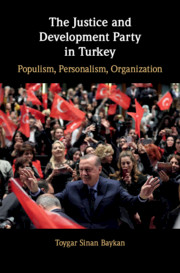Book contents
- The Justice and Development Party in Turkey
- The Justice and Development Party in Turkey
- Copyright page
- Contents
- Figures
- Tables
- Acknowledgements
- Dedication
- 1 Introduction: Agency Matters
- 2 The Transformation of the Turkish Party System: Selective Pluralism and the Rise of the JDP
- 3 The High–Low Divide in Turkish Politics and the Populist Appeal of the JDP
- 4 The JDP and Erdoğan: Non-Charismatic Personalism
- 5 The JDP’s Strategies: Moving beyond the Basics of Turkish Party Politics
- 6 The JDP Organization: A Personalistic Mass Party
- 7 Elite Recruitment in the JDP: ‘You Do Not Want These Kinds of People in the Parliament’
- 8 ‘The New Regime’: The Role of Agency in the Rise of Competitive Authoritarianism in Turkey
- 9 Conclusions: Findings, Implications, Future Research
- Book part
- Bibliography
- Index
- References
Bibliography
Published online by Cambridge University Press: 29 November 2018
- The Justice and Development Party in Turkey
- The Justice and Development Party in Turkey
- Copyright page
- Contents
- Figures
- Tables
- Acknowledgements
- Dedication
- 1 Introduction: Agency Matters
- 2 The Transformation of the Turkish Party System: Selective Pluralism and the Rise of the JDP
- 3 The High–Low Divide in Turkish Politics and the Populist Appeal of the JDP
- 4 The JDP and Erdoğan: Non-Charismatic Personalism
- 5 The JDP’s Strategies: Moving beyond the Basics of Turkish Party Politics
- 6 The JDP Organization: A Personalistic Mass Party
- 7 Elite Recruitment in the JDP: ‘You Do Not Want These Kinds of People in the Parliament’
- 8 ‘The New Regime’: The Role of Agency in the Rise of Competitive Authoritarianism in Turkey
- 9 Conclusions: Findings, Implications, Future Research
- Book part
- Bibliography
- Index
- References
Summary

- Type
- Chapter
- Information
- The Justice and Development Party in TurkeyPopulism, Personalism, Organization, pp. 288 - 314Publisher: Cambridge University PressPrint publication year: 2018

